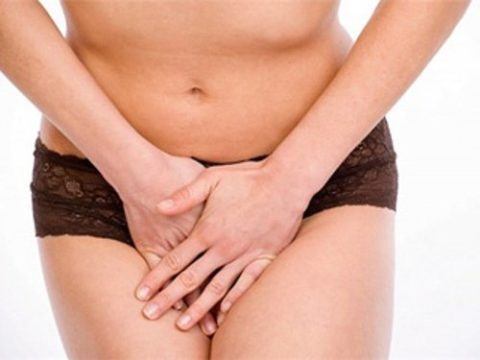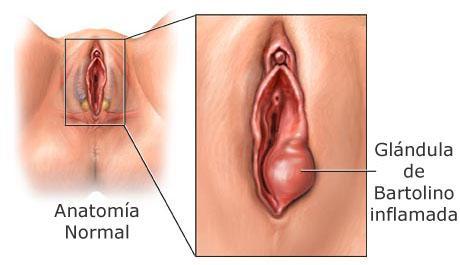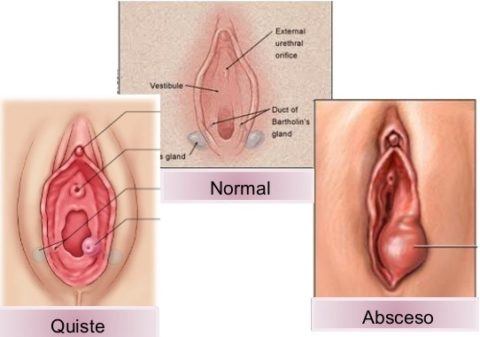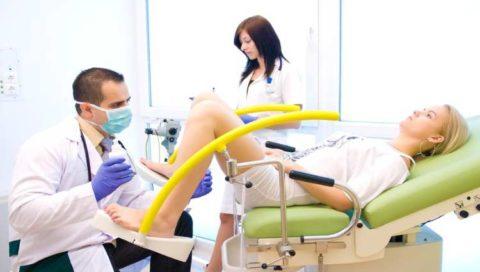Bartolino's cyst | Symptoms, causes and treatment
It is not a serious problem, although it can be annoying. Bartolino cysts are some glands that are located on both sides of the vagina, it usually has a lubrication function, but what happens when that gland gets clogged ?, that's when we can talk about the formation of a Bartolino cyst. Today we are going to dedicate our article to the Bartolino Cyst | Symptoms, causes and treatment to solve this annoying ailment.

What is Bartolino's cyst?
Bartholin's glands are found on both sides of the vagina. If they get clogged they can form a cyst, it's called Bartolino's cyst. The cyst may be painless and have few symptoms but common bacteria such as E. coli or those that cause sexually transmitted diseases such as chlamydia can infect the cyst, which is also called bartholinitis.
The cyst or also known as Bartolino's abscess, is a disease or ailment located in the female reproductive system. This abscess has a higher incidence among women aged 20 to 29 years. This type of cysts can be very annoying and even painful when having sex, although in itself, the disease is not serious.

According to the latest statistical studies, it is believed that only 2% of the female population have suffered at some point in their lives the inflammation of these Bartholin's glands. glands are responsible for lubricating the vagina and as we have said, are located just behind each side of the labia majora surrounding the vagina, its size does not exceed 1 cm.
Glands of Bartolino secrete flow necessary for sexual intercourse, this flow is transported by some thin ducts in the vagina. If these ducts become blocked, a lump or cavity filled with fluid may form, which is known as a cyst.
Symptoms of Bartolino cyst
Normally this type of cysts does not present any type of symptoms, unless it is infected. The main symptoms are those already mentioned, due to the size that can be acquired, this can press the vulva and cause discomfort for both walking and sitting.

At the time of having sex, you can feel pain, apart from the inflammation, we can not forget that it is a gland to lubricate and that function while it is plugged, can not perform it correctly. Also, due to the infection that may occur, you may feel episodes of fever.
At the time of going to a doctor, it will mainly seek the existence of bacterial infection, and even depending on the age of the patient. the patient, it would be convenient to analyze the fluid to know if the obstruction can be due to a problem in the thickness of the fluid due to other causes.

A small or uninfected cyst does not usually produce symptoms, the woman may not even notice anything. However, if there is a lump that hurts near the vaginal opening, it is likely that the cyst has become infected.This fluid will accumulate over time, even going to spend several years until the end, the cyst or abscess occurs.

This abscess can appear very quickly and usually lasts a few days, noticing that area much hotter and swollen or inflamed. In some cases and due to its size, it can be very annoying to sit or even to walk, causing great pain when pressing on the vulva, even reaching a size of 5 cm in thickness.
We can not say that there is a single cause for the obstruction of this hole and therefore for the appearance of the abscess. Various factors can intervene, starting with tight clothing, especially tight underwear, stress, etc. However, we will make a list of the most common causes for the appearance of the Bartolino cyst.
- Due to the growth of a skin flap in the area
- Due to infections like Genococci, responsible for Gonorrhea, sexually transmitted disease
- Infection due to Escherichia Coli , common in food poisoning
- By action of the Chlamydia, sexually transmitted disease
- Due to the infection of Heamephilus influenzae, responsible for a series of infections such as epiglottis (epiglottis is the skin flap in the back of the throat)
Treatment for the Bartolino cyst
If there is no pain, the cyst will be dissolving on its own and in a few days there will be disappeared, however there is a series of personal care that we can use thanks to its great results.

Personal Care
If the cyst is painless, it usually disappears by itself, if It hurts to perform sitz baths . The sitz baths consist of immersing the affected area in warm water for a few minutes. Repeat the operation four times a day, with them we get that the cyst can open and go draining by itself.
Abscess drainage
It is about making a small incision in the area in order to be able to completely drain the abscess, the symptoms will automatically disappear and the recovery is very fast. To carry out the drainage, this will be done as follows.
- It is usually performed under local anesthesia and on an outpatient basis, if necessary to be admitted.
- Se make an incision and insert a catheter or probe that will be left for about 4 or 6 weeks, so the abscess will continue draining while the entire area begins to heal.
- After the operation should begin to take Sitz baths in warm water after having spent a couple of days and you should not have sex until the catheter is removed.
The doctor will reinforce, in case of infection, the treatment with the prescription of antibiotics.
Marsupialization
In cases in which the abscess is very frequent or the risks of infection are very high, you can use a surgical procedure, classified as minor surgery and called marsupialization. ong>
This process consists of making a small opening that will remain permanently and that will help the gland to drain perfectly. This type of intervention can be performed with local or general anesthesia.Only in exceptional cases, the total removal of the Bartolino gland can be recommended, if the abscesses continue to reappear despite this intervention.
Video with information about the Bartolino cyst
You may also be interested in:
In BlogMedicina , we hope this article has been of interest to you, however we want to show you some links that may also interest you.
- Disorders in menstruation: Causes, types and treatments
- How to detect a vaginal infection?


